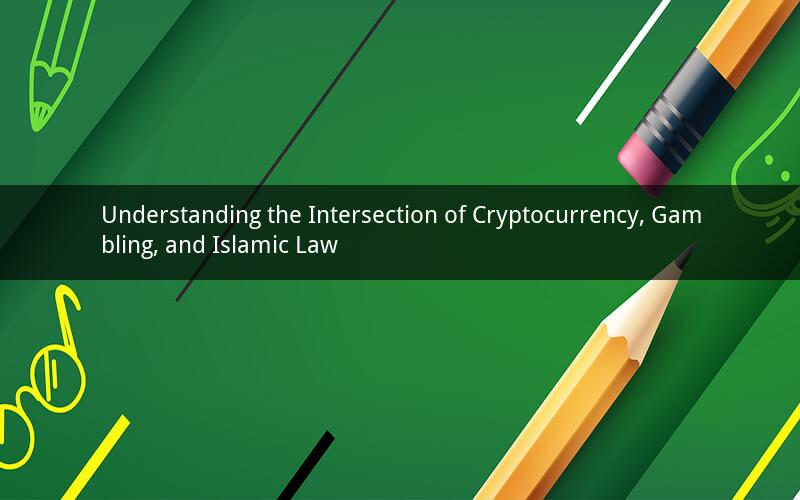
Introduction:
Cryptocurrency has gained significant popularity in recent years, attracting individuals from various backgrounds. One of the concerns raised by Muslims is whether cryptocurrency gambling is permissible in Islam. This article delves into the debate surrounding cryptocurrency gambling and its compatibility with Islamic law.
1. What is Cryptocurrency?
Cryptocurrency is a digital or virtual currency that uses cryptography for security. It operates independently of a central authority, such as a government or financial institution. Bitcoin, Ethereum, and Litecoin are some of the most well-known cryptocurrencies.
2. What is Gambling?
Gambling refers to betting money or valuable items on an uncertain outcome, with the primary intention of winning more money or valuable items. It involves risk and chance, and the outcome is often unpredictable.
3. Islamic Perspective on Gambling
In Islam, gambling is considered haram (forbidden) due to several reasons. Firstly, it involves uncertainty and risk, which go against the principles of fairness and justice. Secondly, it often leads to financial loss and can cause social and economic problems. Lastly, it can lead to addiction and moral decay.
4. Cryptocurrency Gambling in Islam
The question of whether cryptocurrency gambling is permissible in Islam arises due to the nature of cryptocurrencies. Here are some points to consider:
a. Legality of Cryptocurrency:
Islamic scholars have differing opinions on the legality of cryptocurrency. Some argue that it is haram due to its speculative nature and potential for manipulation. Others believe that it is permissible as long as it is used for legitimate purposes.
b. Gambling Aspect:
Regardless of the legality of cryptocurrency, the act of gambling itself is haram in Islam. This means that engaging in cryptocurrency gambling, whether using traditional currencies or cryptocurrencies, is considered forbidden.
c. Risks and Addictions:
Cryptocurrency gambling carries the same risks and potential for addiction as traditional gambling. It can lead to financial loss, debt, and other social and economic problems. Therefore, Muslims should avoid engaging in any form of gambling, including cryptocurrency gambling.
5. Alternatives for Muslims
For Muslims who are interested in investing or engaging in financial activities, there are alternative options that align with Islamic principles:
a. Islamic Finance:
Islamic finance operates based on principles derived from Islamic law, known as Sharia. It involves profit-sharing, risk-sharing, and ethical investment practices. Muslims can consider investing in Islamic banks or funds that adhere to these principles.
b. Cryptocurrency Exchanges:
Some cryptocurrency exchanges offer Sharia-compliant services, ensuring that the platforms are free from gambling and other haram activities. Muslims can use these platforms for legitimate purposes, such as buying and selling cryptocurrencies.
6. Conclusion
In conclusion, cryptocurrency gambling is considered haram in Islam due to the gambling aspect and the potential risks involved. Muslims should avoid engaging in any form of gambling, including cryptocurrency gambling. Instead, they can explore alternative options like Islamic finance or Sharia-compliant cryptocurrency exchanges.
FAQs:
1. Is it permissible for Muslims to invest in cryptocurrencies?
Answer: The legality of investing in cryptocurrencies varies among Islamic scholars. Some consider it permissible as long as it is used for legitimate purposes, while others believe it is haram due to its speculative nature.
2. Can Muslims use cryptocurrencies for gambling?
Answer: No, Muslims are prohibited from engaging in any form of gambling, including cryptocurrency gambling.
3. Are there any Sharia-compliant cryptocurrency exchanges?
Answer: Yes, there are cryptocurrency exchanges that offer Sharia-compliant services, ensuring that the platforms are free from gambling and other haram activities.
4. Can Muslims use cryptocurrency for charitable purposes?
Answer: Yes, Muslims can use cryptocurrency for charitable purposes as long as the transaction is conducted through a Sharia-compliant platform.
5. How can Muslims ensure that their cryptocurrency investments are Sharia-compliant?
Answer: Muslims can consult with Islamic scholars or financial experts who specialize in Islamic finance to ensure that their cryptocurrency investments align with Sharia principles.